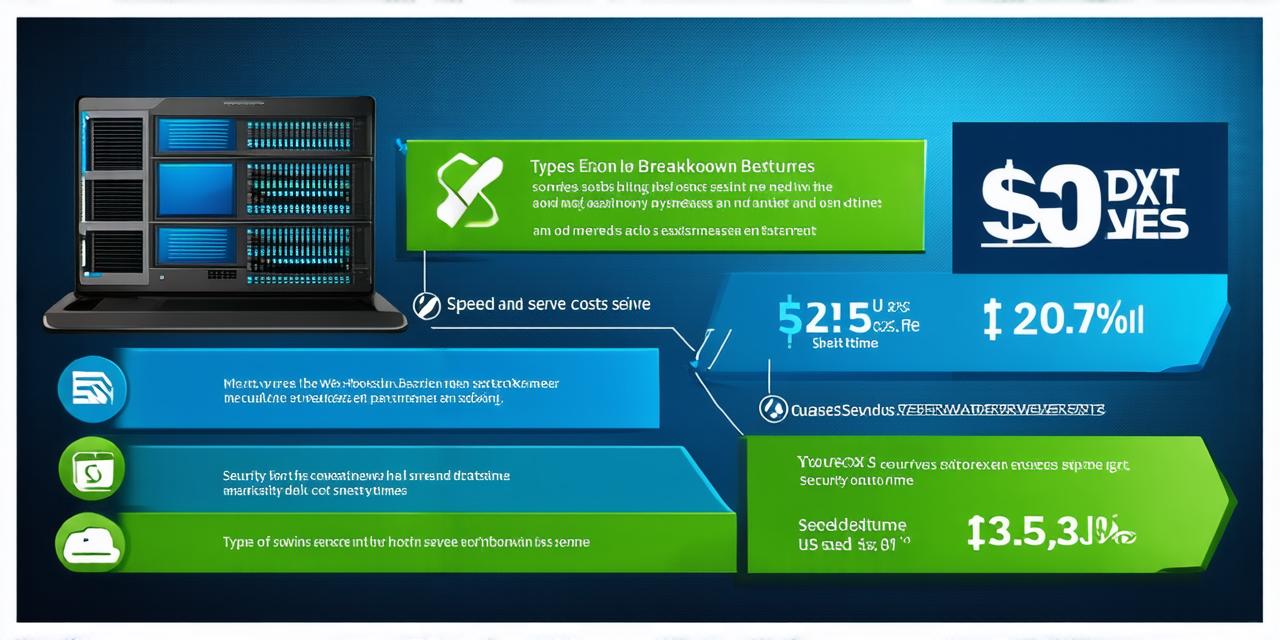Benefits of Web Hosting
Web hosting is an essential component of any website, and it can make or break your online presence. It allows you to store your website’s files and data on a server so that users can access them from anywhere in the world.
- Improved Website Performance: When your website is hosted on a server, it can perform better because the server has the necessary resources to handle traffic and requests. This means faster loading times, fewer downtime, and improved user experience.
- Accessibility: With web hosting, users can access your website from anywhere in the world, as long as they have an internet connection.
- Cost-Effective: Web hosting providers offer a variety of plans to suit different needs and budgets, making it cost-effective to maintain a website.
- Security: Many web hosting providers offer security features such as SSL certificates, malware scans, and regular backups, which can help protect your website from cyber threats.
- Scalability: Web hosting providers also offer scalable solutions that allow you to increase or decrease resources on demand.
Types of Web Hosting
1. Shared Hosting: This is the most common type of web hosting and is suitable for small to medium-sized websites. It allows multiple websites to share the same server resources, making it cost-effective but can be less secure than other types of hosting.
2. Dedicated Hosting: This type of hosting provides a dedicated server for your website’s needs, which gives you more control over the server and its resources. It is suitable for larger websites that require more resources and security features.
3. VPS Hosting: Virtual Private Server hosting provides a virtualized server environment that allows multiple websites to run on the same physical server. It offers a balance between shared hosting and dedicated hosting, providing more control over the server and its resources.
4. Cloud Hosting: This type of hosting stores your website’s data in the cloud, allowing you to access it from anywhere in the world. It is suitable for websites that experience high traffic or require scalable solutions.
Choosing the Right Web Hosting Provider
When choosing a web hosting provider, there are several factors to consider:
- Reliability: Look for a provider that offers 99% uptime or better, as well as a reputation for fast and reliable service.
- Support: Good support is crucial when it comes to web hosting. Choose a provider that offers 24/7 customer support via phone, email, or live chat.
- Security: Look for a provider that offers security features such as SSL certificates, malware scans, and regular backups.
- Scalability: Choose a provider that offers scalable solutions, allowing you to increase or decrease resources on demand.
- Price: While cost is an important factor, it shouldn’t be the only one. Look for a provider that offers good value for money, taking into account all of the features and services they offer.
- Reputation: Research the provider’s reputation by reading customer reviews and testimonials.
Real-Life Examples of Web Hosting Success Stories
1. Shopify: Shopify is an e-commerce platform that uses cloud hosting to power its websites. They have over 1 million users and offer a wide range of features and integrations, making it easy for businesses to sell online.
2. Airbnb: Airbnb uses dedicated hosting to power its website, which has over 7 million listings in more than 200 countries. The platform’s success is due in part to the high-performance hosting provided by its server infrastructure.
3. Medium: Medium uses cloud hosting to power its website, which features user-generated content from thousands of writers around the world. The platform has over 90 million monthly active users and is known for its clean and intuitive design.
FAQs
What is web hosting? Web hosting is a service that allows you to store your website’s files and data on a server, making it accessible to users from anywhere in the world.
How does web hosting work? Web hosting works by storing your website’s files and data on a server, which can be accessed via an IP address or domain name. When a user visits your website, their browser sends a request to the server, which retrieves and displays the requested content.
What are the benefits of web hosting? The benefits of web hosting include improved website performance, accessibility, cost-effectiveness, security, scalability, and more.
What are the types of web hosting? The types of web hosting include shared hosting, dedicated hosting, VPS hosting, and cloud hosting.



